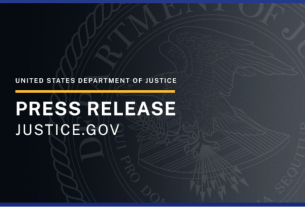Federal Investigation Uncovers Widespread Medical Fraud
A Texas rheumatologist has been sentenced to 10 years in federal prison for orchestrating a health care fraud scheme involving over $118 million in fraudulent claims, resulting in insurers paying more than $28 million for unnecessary medical procedures.
Jorge Zamora-Quezada, M.D., 68, of Mission, Texas, falsely diagnosed patients with chronic illnesses to bill for treatments they did not need. Following a 25-day trial, Zamora-Quezada was convicted of:
- One count of conspiracy to commit health care fraud
- Seven counts of health care fraud
- One count of conspiracy to obstruct justice
In addition to his prison sentence, Zamora-Quezada was ordered to forfeit $28,245,454, including 13 real estate properties, a jet, and a Maserati GranTurismo.
Fraudulent Medical Practices & Patient Harm
Trial evidence revealed that Zamora-Quezada falsely diagnosed patients with rheumatoid arthritis and prescribed harmful, unnecessary treatments to defraud Medicare, Medicaid, TRICARE, and private insurers.
His fraudulent diagnoses led patients to believe they had lifelong, incurable conditions requiring continuous medical interventions. To support his false claims, he:
- Fabricated patient records to deceive insurance providers.
- Ordered unnecessary medical procedures including injections, infusions, x-rays, MRIs, and other tests, exposing patients to harmful side effects.
- Obstructed investigations, altering records after receiving a federal grand jury subpoena.
Patients reported severe physical consequences, including strokes, jaw necrosis, hair loss, liver damage, and pain so extreme that basic daily activities became impossible.
Federal Officials Condemn Abuse of Medical Authority
U.S. officials described Zamora-Quezada’s actions as a gross violation of patient trust.
Matthew R. Galeotti, Head of the Justice Department’s Criminal Division, stated:
“For two decades, Zamora-Quezada funded his luxury lifestyle by traumatizing patients, abusing employees, lying to insurers, and stealing taxpayer money. His actions represent a profound betrayal of vulnerable individuals who relied on him for care.”
HHS-OIG Special Agent in Charge Jason E. Meadows emphasized the importance of prosecuting health care fraud:
“False diagnoses and excessive billing abuse both patient trust and public resources. We must protect individuals from harm and uphold the integrity of federal health care programs.”
Hostile Work Environment & Attempts to Conceal Fraud
Former employees testified that Zamora-Quezada imposed strict quotas for unnecessary procedures, threatened staff, and fired employees who questioned his unethical practices.
Investigators also discovered efforts to hide fabricated patient records in a dilapidated storage facility, where files were infested with rodents and termites.
Luxury Lifestyle Funded by Fraudulent Practices
Zamora-Quezada used proceeds from his crimes to fund an extravagant lifestyle, acquiring:
- Real estate properties across the U.S. and Mexico
- A private jet
- A Maserati GranTurismo
Law Enforcement & Prosecution
The case was investigated by:
- FBI
- U.S. Department of Health and Human Services Office of Inspector General (HHS-OIG)
- Texas Medicaid Fraud Control Unit
- Defense Criminal Investigative Service
The prosecution team included Principal Assistant Chief Jacob Foster and Assistant Chiefs Rebecca Yuan and Emily Gurskis of the Justice Department’s Fraud Section, as well as Assistant U.S. Attorney Laura Garcia for the Southern District of Texas. Asset forfeiture proceedings were handled by Assistant U.S. Attorney Kristine Rollinson.
Combatting Health Care Fraud
The case falls under the Justice Department’s Health Care Fraud Strike Force Program, which has prosecuted over 5,800 defendants involved in schemes totaling more than $30 billion in fraudulent claims.
More information on health care fraud prevention can be found at justice.gov/criminal-fraud/health-care-fraud-unit.
Conclusion
Zamora-Quezada’s sentencing reinforces the government’s commitment to protecting patients and ensuring accountability for fraudulent medical practices. His actions left countless individuals with lasting harm, demonstrating the urgent need for vigilance and enforcement against health care fraud.



